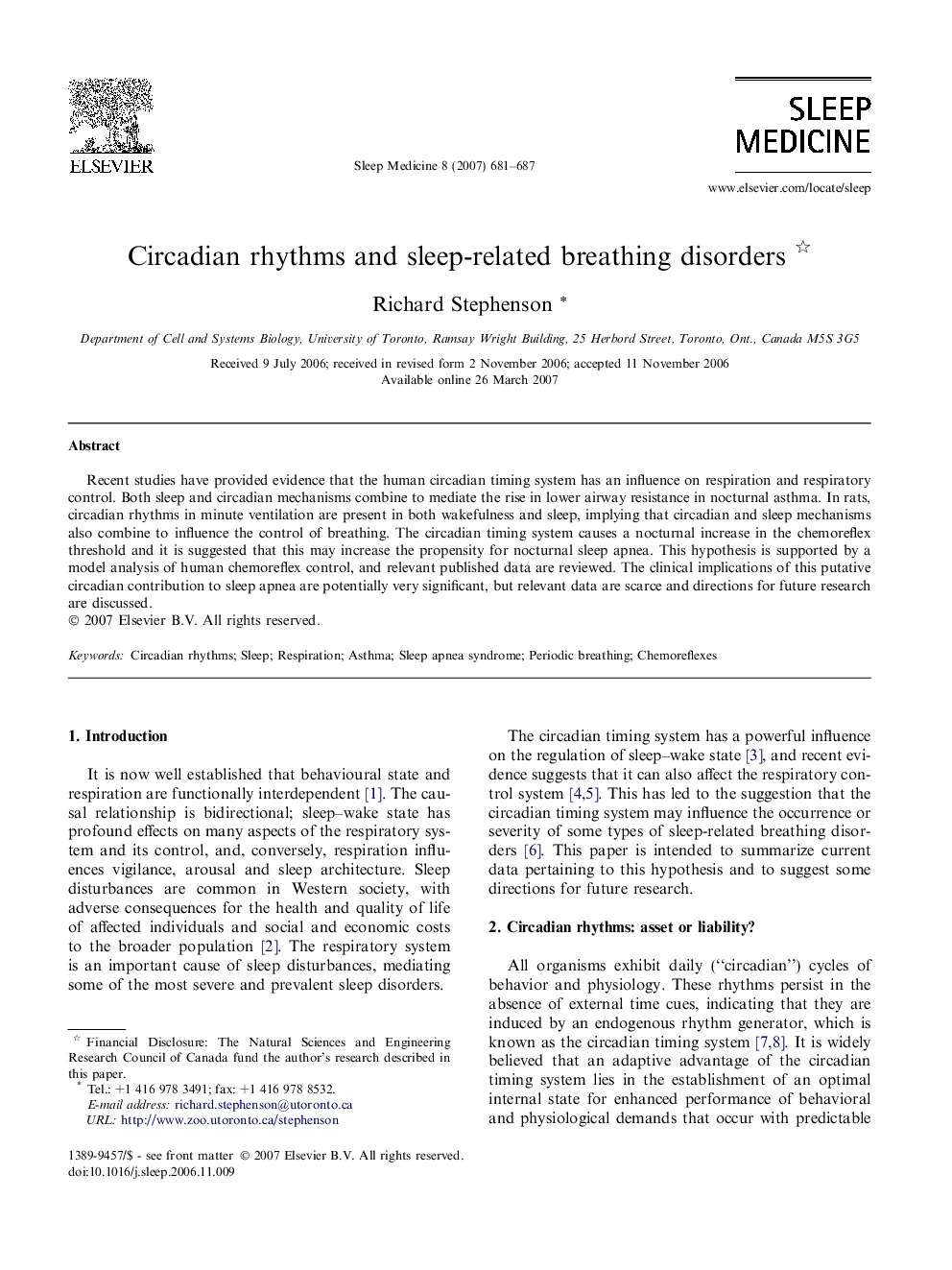| Article ID | Journal | Published Year | Pages | File Type |
|---|---|---|---|---|
| 3178122 | Sleep Medicine | 2007 | 7 Pages |
Recent studies have provided evidence that the human circadian timing system has an influence on respiration and respiratory control. Both sleep and circadian mechanisms combine to mediate the rise in lower airway resistance in nocturnal asthma. In rats, circadian rhythms in minute ventilation are present in both wakefulness and sleep, implying that circadian and sleep mechanisms also combine to influence the control of breathing. The circadian timing system causes a nocturnal increase in the chemoreflex threshold and it is suggested that this may increase the propensity for nocturnal sleep apnea. This hypothesis is supported by a model analysis of human chemoreflex control, and relevant published data are reviewed. The clinical implications of this putative circadian contribution to sleep apnea are potentially very significant, but relevant data are scarce and directions for future research are discussed.
